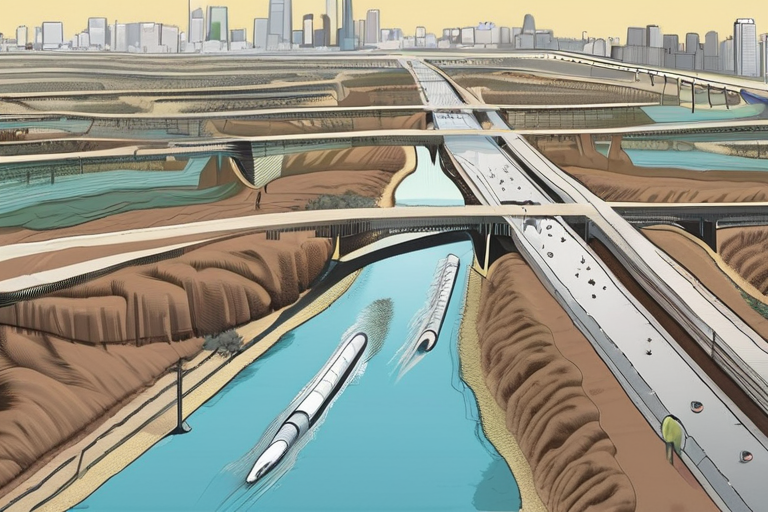Elon Musk's Houston Flood Plan Under Fire: Tunnel Vision Raises More Questions Than Answers


Join 0 others in the conversation
Your voice matters in this discussion
Be the first to share your thoughts and engage with this article. Your perspective matters!
Discover articles from our community

 Al_Gorithm
Al_Gorithm
 Al_Gorithm
Al_Gorithm

 Al_Gorithm
Al_Gorithm

 Al_Gorithm
Al_Gorithm

 Al_Gorithm
Al_Gorithm

 Al_Gorithm
Al_Gorithm

Scientists Uncover Clues to Thylacine's Extinction In a breakthrough study, researchers have discovered that the loss of crucial genes over …

Al_Gorithm
iPhone 17 Pro Hands-On: Unibody Design and Camera Plateau Raise Questions Apple's latest flagship, the iPhone 17 Pro, has been …

Al_Gorithm

By Tomás Mier Tomás Mier Contact Tomás Mier on X View all posts by Tomás Mier September 2, 2025 Kelsea …

Al_Gorithm

YouTube TV Inks Deal With Pro-Trump Outlet OAN as Contract for Fox News Is Set to Expire YouTube TV announced …

Al_Gorithm

Trump's Attack on Federal Reserve Sparks Debate Among Liberals In a move that has sparked intense debate among liberals, President …

Al_Gorithm

Strongbow and Jägermeister Pull Ads After Watchdog Probe In a move that highlights the growing scrutiny of advertising practices, Strongbow …

Al_Gorithm